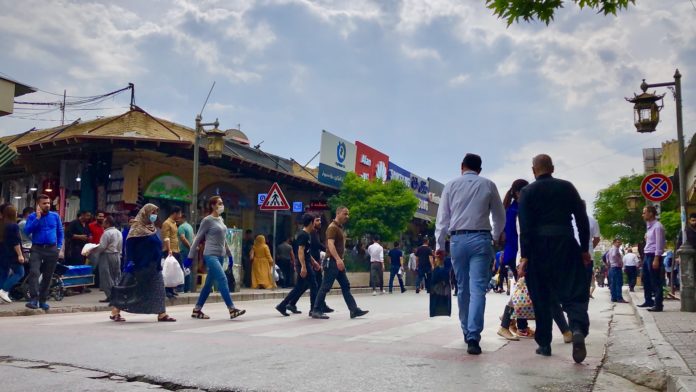Protests broke across Iraq’s Kurdistan Region last month, leading to the deaths of eight protesters and one member of the security forces.
The demonstrations began on December 2 in Sulaymaniyah’s main bazaar as protesters demanded unpaid government salaries.
The unrest has subsequently spread throughout the Sulaymaniyah and Halabja Governorates, where both peaceful and violent protests have been met with rubber bullets, tear gas and live ammunition.
In a number of towns protesters set fire to government buildings.
Several journalists have been arrested for covering the events and NRT, a popular opposition TV station, has been forcibly closed by security forces.
Internet access is being restricted in order to halt the spread of information about the demonstrations.
Additionally, a curfew was imposed to prevent movement between towns in the governorate.
The semi-autonomous Kurdistan Region has been dominated by two main parties since its foundation in 1992: the Kurdistan Democratic Party (KDP), led by the Barzani clan, and the Patriotic Union of Kurdistan (PUK), led by the Talabani clan.
Thus far, protests have been mostly confined to areas under PUK control, based around the Sulaymaniyah Governorate, near the Iranian border.
The Kurdistan Regional Government (KRG) has blamed the global pandemic, reduced oil prices, and a dispute with Baghdad over the federal budget as reasons for being unable to pay its employees.
Dana Tlaib Menmy is a freelance journalist from Sulaymaniyah who covers the Kurdistan Region for various international publications.
According to Dana, demonstrators reject government excuses about unpaid wages.
“Protesters feel the KRG cannot pay salaries mainly due to ongoing nepotism and corruption among government officials. They know public money has been looted for partisan purposes,” he says.
“KRG employees have not received regular salaries this year and those distributed have been subject to deductions.
“University graduates, the unemployed and those without job prospects have joined the demonstrations too, out of solidarity and because of their own grievances.
“Most of the protesters are young, aged 15-25. Two of those killed by security forces were university students,” he adds.





